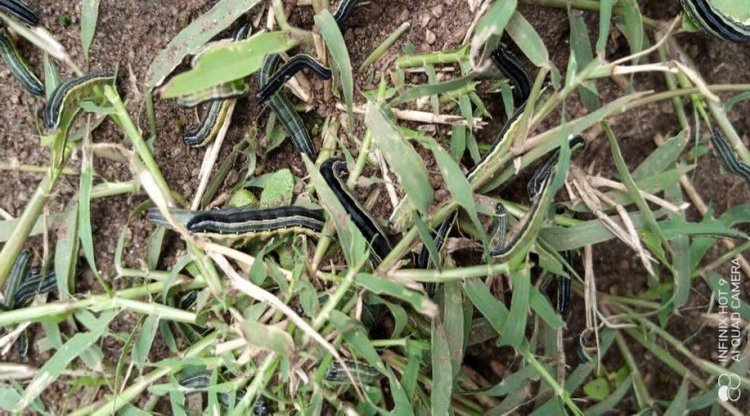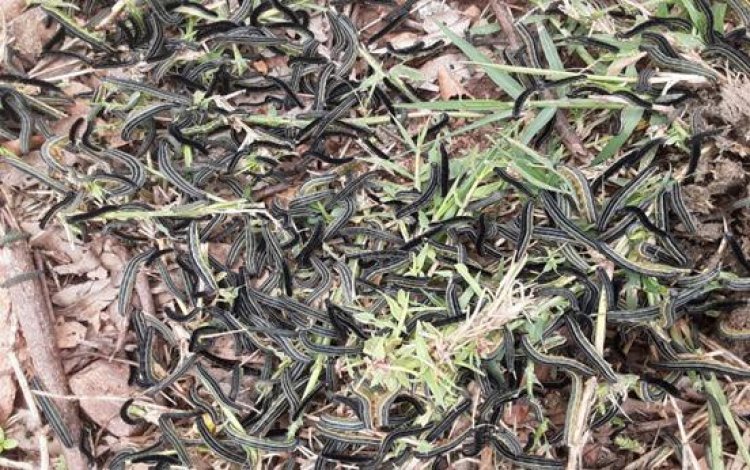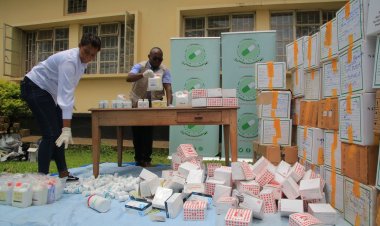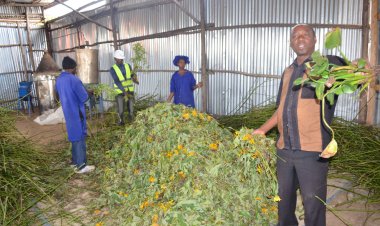African Army worm outbreak is due to Climate Change - Government
It should be categorically clarified that the African army worm is a food security threat because it significantly affects cereals and pasture production in the areas infested’’


While addressing the media in Kampala on the outbreak of the African Army worm in the country, the Minister of state for Agriculture Fred Bwino Kyakulaga said that the worm is suspected to have migrated from neighboring countries renown for higher temperatures into Uganda as a result of the climate change Uganda is currently facing.
In late March 2022, Uganda reported an outbreak of Armyworm in Luweero district and to date, 38 districts across the country including Mukono, Wakiso, Mityana, Katakwi, Luuka, Oyam, Kumi, Kisoro, Amolator, Kaberamaido, Nakaseke, Tororo among others have also confirmed the outbreak.
According to the Minister, this army worm feeds on cereals including maize, millet, sorghum, pastures amongst others and by April, about 1047 gardens across the country have been so far destroyed in areas it has evaded.
‘’It should be categorically clarified that the African army worm is a food security threat because it significantly affects cereals and pasture production in the areas infested’’ Kyakulaga added.

An African army worm also called (spodopteraexempta) scientifically is a migratory moth, with its larva stage of a caterpillar that feeds on leaves being the most destructive.
Their severity and extent of outbreaks are usually increased by extended drought periods followed by early season rainstorms that facilitate migration of the moths.
These also cause significant losses at a local, national and regional scale since they occur in high numbers hence devastating crops as they move.
In their life cycle of 4 stages, these pests are destructive to crops only on larva stage but as far as the Ministry guidance these should be destroyed at their early stage of growth (eggs).
Lately, the Ministry of Agriculture, Animal industry and Fisheries has advised affected district local governments and other stakeholders to continue monitoring and report to the nearest authority on observance of any outbreak, to manually remove and destroy eggs when observed and to also do a buffer spray at the edge of the infestation to protect the rest of the pastures.
In addition to that, the Ministry also advised that stakeholders should immediately source Cypermethrin 5EC pesticides type and where possible they dig a ditch/hole around the infested area which when filled with water, they can kill the caterpillars.
The Ministry has also procured and distributed over 3,000 liters of the recommended Cypermethrin 5EC to the affected communities on the effective control of these pests.
According to Steven Byantwale Tibeijuka the director crop resources, farmers before spraying should ensure safety by using safety gear and after they should also withdraw grazing for 7-10 days in the sprayed area.
‘’After spraying, farmers should wait for a minimum of 4 days to go back in their gardens’’ Steven added.
The Ministry also clarified that 600million Uganda shillings have been injected so far in buying pests equipments and the government has received another 20,000 liters, 100 motorized pumps and 200 sets of protective gear to boost the control measures.

































